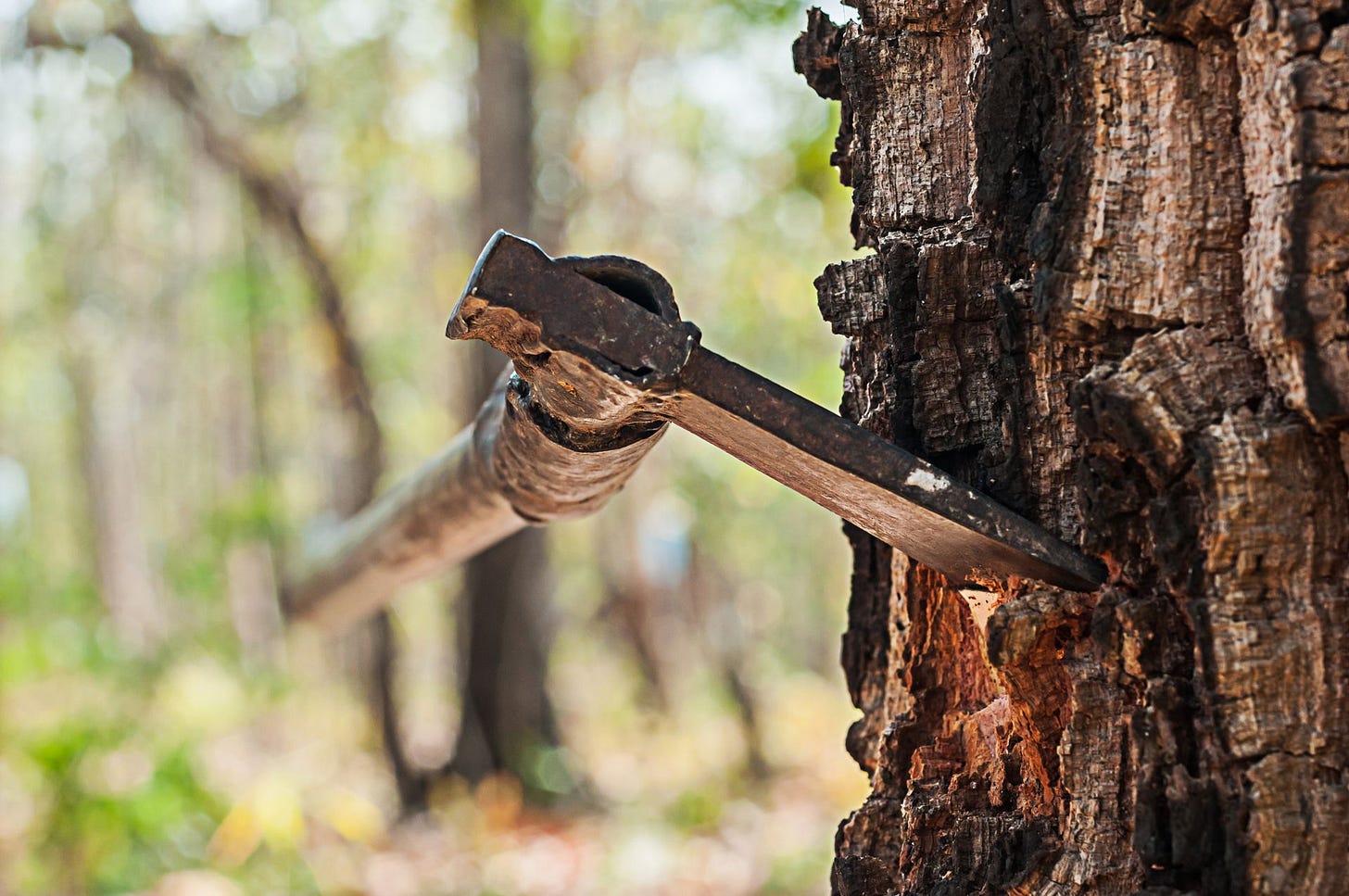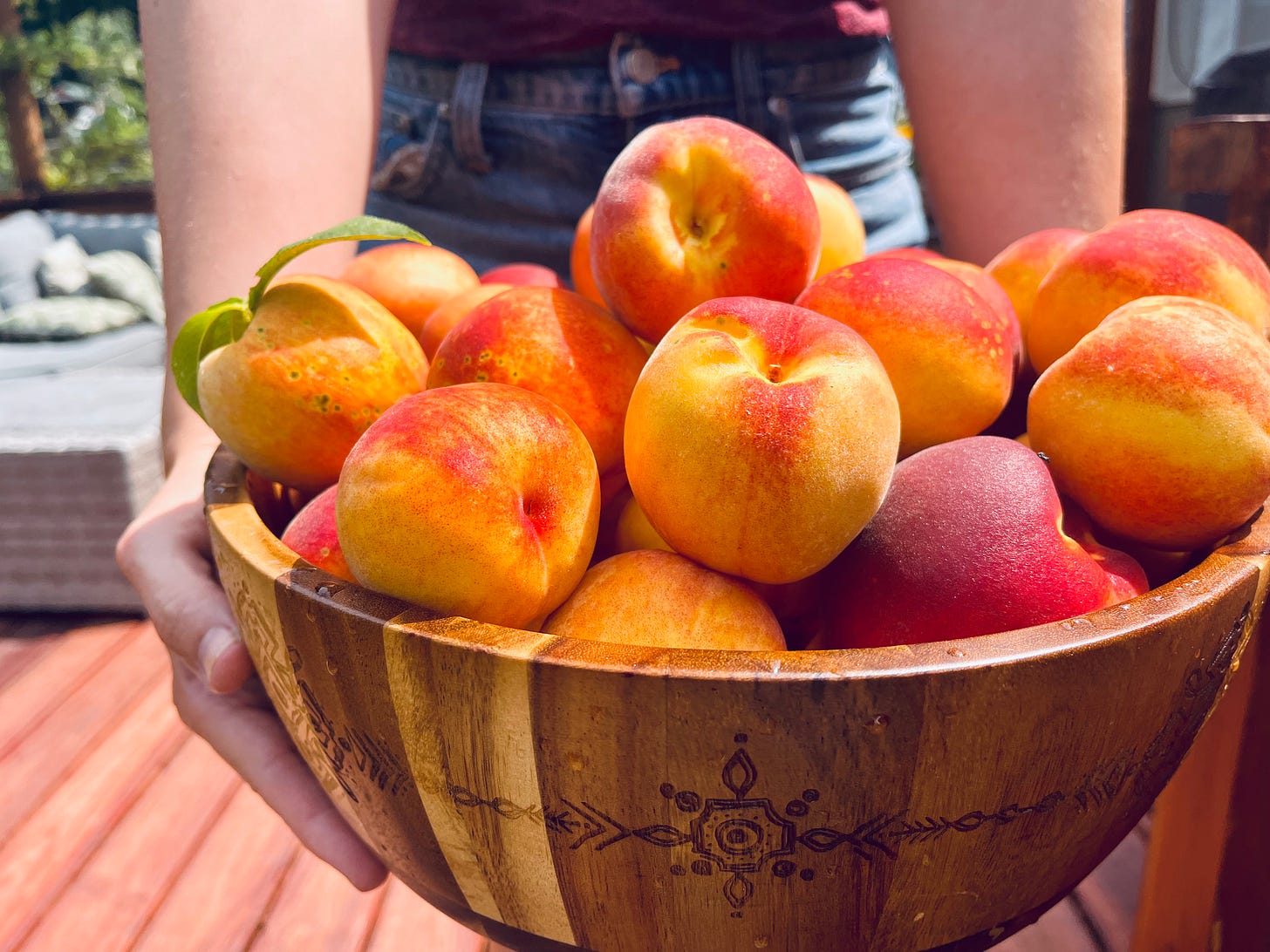The Best-Loved Posts of 2024
A retrospective
Give and Take
Loosestrife, groundhogs, and prayer.
”These days, when I walk out with a mug of black coffee and a watering can to tend to my potted plants each morning, the first sound that interrupts the leafy stillness is the long, languorous hiss of a cicada. The Japanese were the first to make poetry about that sound but, for all of us, it’s synonymous with summer. That quintessentially August atmosphere of long, deep rain and even deeper sun, of tendrilled vegetation sprawling out of control, of a teeming hum in the background of every moment spent outdoors, can perhaps only be fully appreciated when you’re steeped in its opposite: a crisp, frosted winter morning so quiet that the acid chirp of a lone cardinal sounds close and startling. It’s hard to imagine such cold now, when there’s still so much to be done among the greenery…”
Stump Day
It's amazing what you can accomplish with a whole lot of free, unskilled labor.
Me: “Those cherries out front have been dead for a year. We should take them down.”
Administration: “How much would that cost?”
Me: “Around $1,200 for the removal, and $250 for new trees.”
Administration: “We could afford that…if all we had to pay was the $250 for the new trees.”
Me: “I have a crazy idea.”
Administration: “We’re listening.”
Breaking Ground
I was preparing the soil, but it was also preparing me.
“After all the restless fussing of early March, we finally have urgent things to do in the garden. Kenneth Grahame, author of The Wind in the Willows, wrote that the coming of spring fills the atmosphere with a “spirit of divine discontent and longing.” And there is indeed real pleasure in these still-cold mornings that bite your hands when you walk outside and turn your breath to smoke as you watch the birds jostle and dart in the budding trees. The old fathers were right to place Lent during this time of the year in the Northern Hemisphere—it’s a season of mud, mortality, and restless hope…”
The Peach Harvest
A brief dispatch.
“Fr. Robert Capon began his curious and exquisite book The Supper of the Lamb with a whole chapter on onions. The book combines devotional reflection with cooking advice, a mixture that appeals to what I hope are the best parts of my nature. But before he starts his book-length instructions for preparing and eating lamb, he forces us to consider the humble onion. Cut one in half, he advises, and regard it, noticing how it’s not at all a simple sphere, but a world to itself, pushing outward, vividly ‘flame within flame…’”





